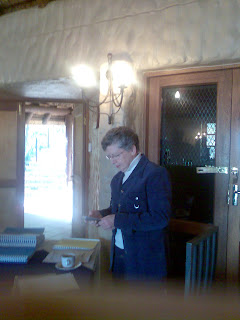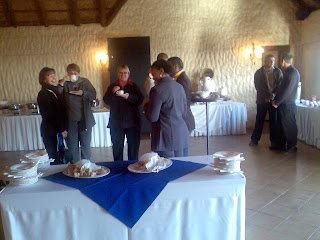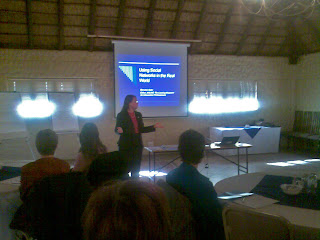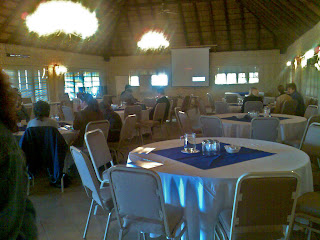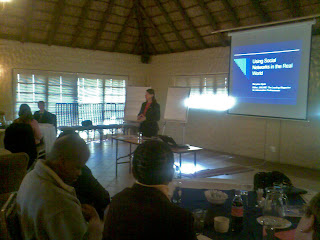Workshop 1: Using Social Networks in the Real World
As we enter a Web 2.0 and Library 2.0 world, it seems everyone is talking about social search. Whether it's blogs, wikis, nings, RSS feeds, podcasts, mashups, remixes, folksonomies, or social bookmarking, there's a whole host of new technologies that encourage sharing of information, collaborative working, and involvement with our users. But how much of this talk about social networks translates into reality and how much is hype? Can information professionals effectively integrate social networking in their daily work lives? This workshop will explore the social networking technologies and give examples of what works, and what doesn't, in the real world of
As we enter a Web 2.0 and Library 2.0 world, it seems everyone is talking about social search. Whether it's blogs, wikis, nings, RSS feeds, podcasts, mashups, remixes, folksonomies, or social bookmarking, there's a whole host of new technologies that encourage sharing of information, collaborative working, and involvement with our users. But how much of this talk about social networks translates into reality and how much is hype? Can information professionals effectively integrate social networking in their daily work lives? This workshop will explore the social networking technologies and give examples of what works, and what doesn't, in the real world of
libraries, education, and business.
Workshop 2 : Advanced Web Search
Today most people equate "search" with Google, and they use Google on a regular basis, sometimes as a replacement for consulting a librarian or going to a library. However, there are other search engines and search tools that information professionals should include in their repertoire, particularly if they expect to present themselves as information experts to those who think that putting a few words into a Google search box is sufficient. This Advanced Search seminar will cover the intricacies of Web search syntax, introduce sophisticated search techniques, explain how Web search differs from traditional online search, compare and contrast Web search engines, look at multimedia search, and explore some new initiatives and projects from the major Web search engines.
Marydee Ojala edits ONLINE:
The Leading Magazine for Information Professionals and writes its business research column (?The Dollar Sign?). She contributes feature articles and news stories to Information Today, Searcher, EContent, Computers in Libraries, Intranets, Cyber Skeptic's Guide to the Internet, and Information Today's NewsBreaks. Her blog is ONLINEInsider.net. A long-time observer of the information industry, she speaks frequently at conferences, such as Web Search University, Online Information (London, UK), Internet Librarian International, and national library meetings outside the U.S. She has adjunct faculty status at the School of Library and Information Science at IUPUI (Indiana University Purdue University Indianapolis) teaching business information resources. Her professional career began at BankAmerica Corporation, San Francisco, directing a worldwide program of research and information services. She established her independent information research business in 1987. She currently serves as membership chair for the Indiana chapter of SLA and as the treasurer for IOLUG (Indiana Online User Group). Her undergraduate degree is from Brown University and her MLS was earned at the University of Pittsburgh.
